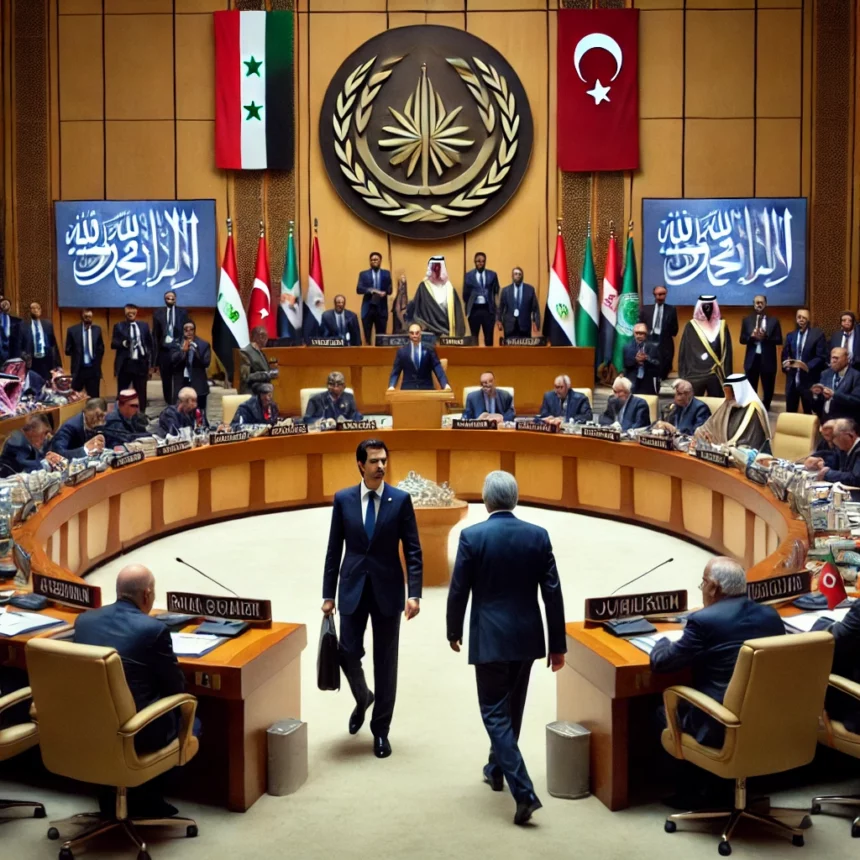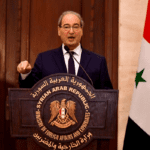The recent incident at the Arab League Council meeting in Cairo, during which the Syrian delegation, led by Foreign Minister Faisal Mekdad, walked out during the speech of Turkish Foreign Minister Hakan Fidan, underscores the profound tensions between Syria and Turkey. This event is a significant milestone in the suspended normalization process between the two countries, which commenced in December 2022 under Russian mediation. The central issue remains unresolved, despite the efforts to restore diplomatic relations: Damascus demands the withdrawal of Turkish military forces from northern Syria and western Iraq, a condition that Turkey has repeatedly rejected.
Context of Tensions Between Turkey and Syria
Turkey’s involvement in Syria has been a topic of debate since the Syrian civil conflict began in 2011. Turkey has maintained a military presence in northern Syria, purportedly to combat Kurdish groups that it regards as terrorist organizations associated with the Kurdistan Workers’ Party (PKK). Nevertheless, this presence is viewed by Syria as an occupation of sovereign Arab land, which has exacerbated the tensions between Ankara and Damascus.
Damascus has consistently demanded the complete withdrawal of Turkish forces as a prerequisite for normalizing relations, as it regards Turkey’s military operations in its northern territories as a violation of its sovereignty. This posture was reaffirmed by Syrian Foreign Minister Mekdad in a recent interview with Russia Today, who stated that the restoration of normal relations between Syria and Turkey is contingent upon Turkey’s withdrawal from both northern Syria and Iraq. Mekdad’s remarks are consistent with Syria’s longstanding assertion that Turkey’s military operations constitute an occupation of Arab territories.
In contrast, Turkey has strategic motives for maintaining its presence in northern Syria. The region is considered essential to Ankara’s national security, particularly in light of concerns regarding the potential for Kurdish militias to establish control along its southern border. Recep Tayyip Erdoğan, the President of Turkey, has been vocal about his desire to establish a “safe zone” in northern Syria to combat these militias and potentially resettle Syrian refugees who are presently residing in Turkey. The Syrian government broadly perceives this approach as an effort to establish a Turkish sphere of influence in the region.
Fidan’s Reentry into the Arab League Following a 13-Year Absence
Turkey’s return to the Arab League after a 13-year absence, which followed a period of fraught relations with several Arab nations, is significant due to Foreign Minister Hakan Fidan’s attendance at the meeting.
Fidan’s address to the Arab League Council was centered on critical regional concerns, with a particular emphasis on the deteriorating conditions in the West Bank and Gaza. This speech was indicative of Turkey’s ongoing support for Palestinian rights. The Syrian delegation’s walkout overshadowed his remarks, underscoring the unresolved tensions between Syria and Turkey, despite the importance of this crucial agenda.
The Walkout of the Syrian Delegation
The Syrian delegation’s decision to withdraw from the event during Fidan’s address can be interpreted as a diplomatic protest against Turkey’s persistent military presence in northern Syria. The gesture was intended to reaffirm Syria’s stance that Turkish-Syrian relations cannot be significantly improved unless Turkey complies with its withdrawal demands. Despite Syria’s reintegration into the Arab League in May 2023, which followed a decade-long suspension, its tensions with Turkey continue to impede broader regional collaboration.
The Syrian delegation’s departure from the room as Fidan began to speak, followed by their return after his remarks concluded, serves as a clear indication that Syria is amenable to engaging with Arab League members. However, it will not permit Turkey’s participation in any discussion without first addressing the fundamental issue of Turkish forces on Syrian soil.
Additional Consequences for Regional Diplomacy and the Arab League
Syrian-Turkish relations were not the sole focus of the 162nd ordinary session of the Arab League Council. A variety of urgent regional concerns were addressed on the agenda, including the escalating violence in Gaza and the West Bank, Israeli attacks in Syria, Arab water security, the Grand Ethiopian Renaissance Dam crisis, the war in Sudan, and the ongoing conflicts in Yemen and Libya. The high level of international interest in addressing these regional crises is emphasized by the participation of EU foreign policy chief Josep Borrell and Fidan.
Turkey’s participation in the Arab League discussions, following an extended absence, indicates that Ankara is eager to reestablish its relationship with the broader Arab world and to establish itself as a significant factor in regional diplomacy. Nevertheless, the Syrian delegation’s departure underscores the obstacles Turkey encounters in reestablishing trust and mending relationships with countries such as Syria, where its military presence is perceived as a direct threat to national sovereignty.
Turkey’s regional strategy encompasses numerous components, including its fraught relationship with Syria. After years of diplomatic estrangement, Turkey has recently endeavored to reconcile with numerous Arab countries, such as Egypt and the UAE. These endeavors are a component of Turkey’s overarching strategy to reevaluate its foreign policy in the Middle East, particularly in light of the region’s internal conflicts, shifting alliances, and external pressures.
In conclusion,
The Syrian delegation’s decision to withdraw from the Arab League Council meeting during Hakan Fidan’s address serves as a stark reminder of the profound divisions that continue to influence the geopolitics of the region. Syria continues to impede any significant reconciliation between the two nations by insisting on the withdrawal of Turkish forces from its territory, despite efforts to normalize relations. Turkey’s relations with Damascus are still being strained by the unresolved issue of its military presence in northern Syria, despite its efforts to reestablish its influence in the Arab world.
This incident also serves as an illustration of the more extensive intricacies of Middle Eastern diplomacy, in which territorial disputes, overlapping conflicts, and geopolitical rivalries persist in their efforts to impede regional cooperation and peace. The question of how to reconcile these divergent interests remains at the vanguard of the region’s diplomatic agenda as the Arab League addresses multiple crises in Gaza, Syria, Yemen, Sudan, and beyond.



